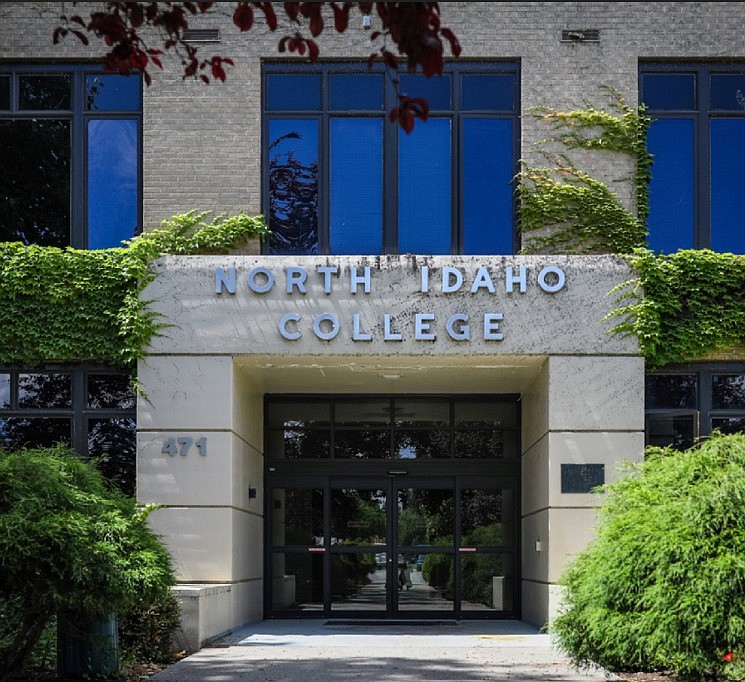Several accreditation outcomes possible for NIC
COEUR d’ALENE — The fate of North Idaho College is expected to be revealed in July, when the Northwest Commission on Colleges and Universities announces whether it will retain accreditation.
If the college loses accreditation, it may be impossible to regain.
“Nobody’s done it,” NIC President Nick Swayne told a crowd of around 40 community members Wednesday afternoon. “We’re writing the book on how that might happen.”
The group had gathered in the Lake Coeur d’Alene Room in the Student Union Building for a community focus group organized by Kootenai County’s four chambers of commerce.
It was the second forum in a series organized by the area chambers and the first after North Idaho College submitted its response to a show cause sanction issued by the NWCCU.
A team from the accrediting body conducted a site visit last week in order to validate the contents of NIC’s response and ascertain whether the college meets accreditation requirements.
In late June, NWCCU’s board of commissioners will convene and consider the peer evaluation report prepared by the site visit team. NIC representatives will be invited to appear and respond to questions.
The commission will make a decision and share it with NIC within 30 days of that meeting.
Interim Provost Lloyd Duman outlined the possible outcomes, which could be negative, neutral or positive.
In a worst-case scenario, NWCCU could revoke accreditation immediately after rendering its decision.
Students would be unable to take classes at NIC and the college would have to implement “teach out” agreements with other institutions immediately, in coordination with the Idaho State Board of Education.
NIC submitted a teach-out plan as part of its show cause response. It includes a list of regional institutions that offer similar programs that NIC students could be directed to complete their educations.
Sherry Simkins, NIC Dean of Instruction, pointed out that the other institutions throughout the region, such as Spokane Falls Community College or the University of Idaho, are less accessible to local students due to distance and cost. She emphasized the importance of having a community college in Coeur d’Alene.
“If it can’t be NIC, we are recommending another institution come onto NIC’s campus,” she said.
Alternatively, NWCCU could institute teach-out periods lasting one or two semesters. This would give NIC more time to teach students who are currently enrolled and hand them off to other institutions before accreditation is revoked.
It’s also possible that NWCCU could leave North Idaho College on “show cause” status and put off a final decision until a later date, potentially after the next school year. In that scenario, the accrediting body will specify what changes or positive progress it wants to see from NIC while a decision is pending.
Or, NIC may receive a less severe sanction, such as probation, which would give the college more time to demonstrate compliance with accreditation standards and return to good standing.
“I can tell you that the NWCCU basically said, ‘If you lose accreditation, the chances of coming back, the phoenix plan, is really not a realistic hope,’” Swayne said. “We’d have to figure out some other way of restoring education on this campus.”
Swayne noted that North Idaho College’s situation is unusual. Most colleges that face accreditation loss do so because of problems with finances or academics, both of which are solid at NIC.
Instead, nearly three years of dysfunction on the college’s board of trustees have brought NIC to this place.
No college in Idaho has ever lost accreditation and state law has no framework for what happens after such a loss.

